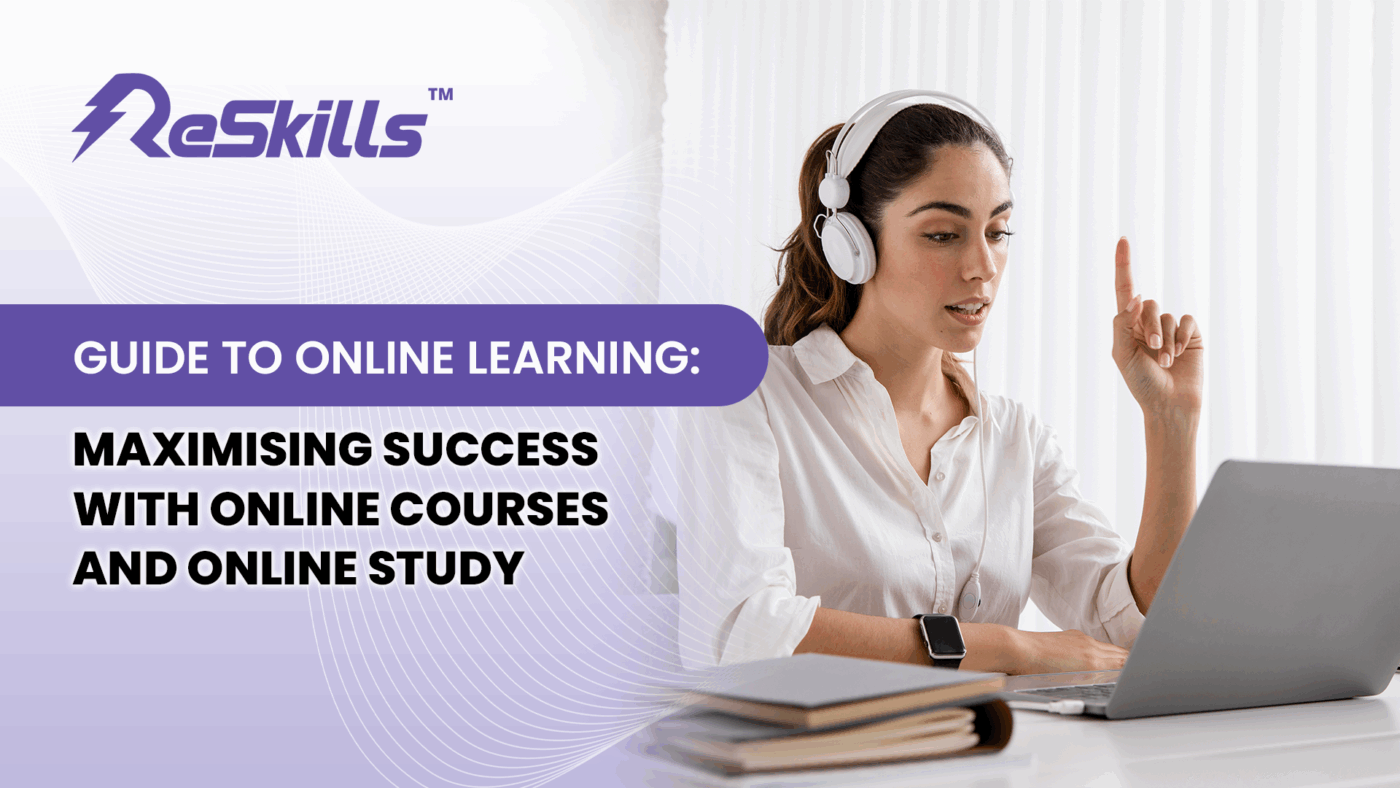Online learning has revolutionised education, offering flexible, accessible, and diverse opportunities for learners worldwide. Whether you’re interested in online courses for career advancement, personal growth, or academic achievement, understanding how to maximise online study is essential. This comprehensive guide will explore the benefits, types, and best practices for online learning, answer common questions, and help you unlock your full potential.
What is Online Learning?
Online learning, e-learning or distance education refers to acquiring knowledge and skills through digital platforms. It encompasses a wide range of educational formats, including virtual classrooms, self-paced modules, and interactive webinars via self learning. Online study leverages technology to break down geographical barriers, making education more inclusive and adaptable.
Among the most innovative solutions in this space is ReSkills, a subscription-based global online learning platform that redefines how people access education. We offer a buffet-style approach, allowing learners to join unlimited daily live classes, access on-demand videos, participate in interactive webinars, and engage in conferences for just $1 per month. With over 3,000 learning resources and globally accredited micro-certifications, ReSkills empowers users to learn anytime, anywhere, and at their own pace.

The platform’s high-impact, interactive learning model connects students with Master Coaches and industry experts from around the world. Whether you’re interested in business entrepreneurship, digital technology, personal growth, or creative arts, we provide a diverse array of topics to suit every learner’s needs. By leveraging advanced technology, we break down geographical and financial barriers, making quality education more inclusive and adaptable than ever before. This makes it especially valuable for working professionals, students, and lifelong learners seeking flexibility and affordability in their online study journey.
Types of Online Courses
Online courses come in various formats to suit different learning preferences and needs. Here’s a breakdown of the most common types:
| Type of Online Course | Description | Best For |
| Synchronous Learning | Real-time interaction via video conferencing or live chat | Learners who prefer structure and live interaction |
| Asynchronous Learning | Self-paced study with pre-recorded lectures and materials | Busy individuals needing flexibility |
| Hybrid (Blended) Learning | Combining online and in-person sessions | Those seeking both flexibility and face-to-face support |
| Microlearning | Short, focused lessons (videos, quizzes, infographics) | Learners wanting bite-sized, on-demand content |
| MOOCs (Massive Open Online Courses) | Open to large numbers, often free or low-cost, self-paced | Anyone interested in specific topics without formal accreditation |
Benefits of Online Learning
Online learning offers a multitude of advantages that make it an appealing choice for students and professionals alike:
- Flexibility: Study at your own pace, from anywhere, fitting learning around your schedule.
- Accessibility: Access courses from top institutions and experts globally, regardless of location.
- Work-Life Balance: Balance education with work, family, and personal commitments.
- Cost-Effectiveness: Save on commuting, accommodation, and often tuition fees.
- Skill Development: Enhance technical, communication, and time management skills.
- Diverse Learning Resources: Benefit from multimedia content, interactive assignments, and global peer collaboration.
- Reduced Stress: Learn in a comfortable environment, minimising the pressures of traditional classrooms.
- Environmental Impact: Lower carbon footprint by reducing travel and paper usage.
- Cultural Exchange: Interact with peers from different backgrounds, broadening perspectives.
Effective Methods for Online Study
To excel in online courses, adopting effective study strategies is crucial. Here are proven tips for maximising your online learning experience:
- Choose a Dedicated Study Space: Ensure reliable internet access and minimal distractions.
- Create a Study Schedule: Set regular times for coursework to build consistency and discipline.
- Engage Actively: Participate in discussions, ask questions, and collaborate with peers.
- Utilise Digital Tools: Leverage planners, productivity apps, and note-taking software.
- Set Clear Goals: Define what you want to achieve from each course or module.
- Take Breaks: Incorporate short breaks to maintain focus and prevent burnout.
- Seek Feedback: Regularly interact with instructors for guidance and clarification.
- Practice Self-Motivation: Stay committed by reminding yourself of your objectives.
- Apply What You Learn: Implement new knowledge through projects or real-world scenarios.

Frequently Asked Questions
How to learn online courses effectively?
- Set up a dedicated workspace, stick to a schedule, engage with course materials, and participate in discussions for deeper understanding.
What are the different types of online courses?
- Synchronous, asynchronous, hybrid, microlearning, and MOOCs are the main types, each catering to different learning styles and needs.
What are the benefits of online learning?
- Flexibility, accessibility, cost savings, skill development, reduced stress, and global networking opportunities are key benefits.
What are the most effective ways to learn online?
- Time management, active participation, leveraging digital resources, and setting clear goals are highly effective.
What are some effective methods for learning online?
- Using planners, minimising distractions, engaging with peers, and applying learned concepts in real life.
How to learn from online courses efficiently?
- Stay organised, track progress, seek feedback, and regularly review materials to reinforce learning.
What is the best online course you took this year?
- This is subjective, but popular choices include courses on digital marketing, programming, and personal development.
Are people still completing courses online?
- Yes, online course completion rates remain high, especially as more institutions and employers recognise their value.
What are the benefits of taking an online course?
- Besides flexibility and accessibility, online courses often offer up-to-date content and industry-relevant skills.
What online courses would you be most interested in taking?
- Popular interests include technology, business, health, language learning, and creative arts.
How to learn online?
- Select reputable platforms, choose relevant courses, and follow structured study routines.
What subjects are the least suited to online learning?
- Subjects requiring extensive hands-on practice, such as advanced laboratory sciences or performing arts, may be less effective online.
Can you learn as much from an online class as in person?
- With the right resources and engagement, online classes can be equally effective, though some practical skills may need in-person practice.
Is taking an online course extremely challenging?
- While online courses require self-discipline, they are designed to be accessible and manageable for motivated learners.
Do you prefer online classes?
- Preferences vary; many appreciate the flexibility, while others miss face-to-face interaction.
Are online courses reliable and effective?
- Accredited courses from reputable platforms are reliable and can lead to recognised qualifications and skills.
What makes online education better than in-class studying?
- Greater flexibility, broader access, and the ability to learn at your own pace are major advantages.
Conclusion
Online learning empowers you to take charge of your education, offering unmatched flexibility, accessibility, and a wealth of resources to support your goals. Whether you’re looking to upskill, change careers, or pursue lifelong learning, platforms like ReSkills provide a dynamic environment to thrive. Ready to unlock your potential? Explore the latest online courses and join a global community of learners at ReSkills-where your learning journey begins today!




